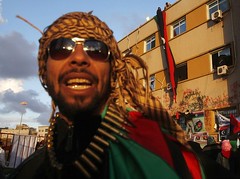Laughter a Threat to Chastity? Yes, Declares Turkey's Deputy Prime Minister
/ANKARA, Turkey -- Chastity has long been a source of contention and in fact has often been used as a justification for the domination of women throughout the centuries in various parts of the world. It is another means by which some men seek to control women’s sexuality and reproductive freedom.
Though many people think of the issue of controlling women and forcibly “preserving” their chastity as a phenomenon unique to countries with emerging economies where young girls are routinely subjected to Female Genital Mutilation (FMG), these practices have been imported to the U.K. and other E.U. nations with high immigrant populations.
However, the West is not without guilt as similar overt restrictions and unsanitary practices were routinely implemented in Europe during the 16th century when men made their wives wear ‘chastity’ belts to prevent sexual intercourse during their long absences at sea or war.
The history of women being controlled subtly and overtly is a never ending battle; however, this week the war for equality reached ridiculous lows when Turkey’s Deputy Prime Minister, Bülent Arınç, stated in a speech that “among other activities that women laughing in public somehow contributed to the moral turpitude of the nation.
During his 28 July 2014 speech which was given on Eid al-Fitr, the official end of the month-long Islamic celebration of Ramadan, “Arınç described his ideal of the chaste man or woman, saying they should both have a sense of shame and honor.” (Source: Hurriyet Daily News)
This atavistic attitude at once casts sexuality as “unclean,” but also blames women for defiling themselves, a specious argument often used to justify rape, while also claiming that these 'loose' women constantly lure otherwise chaste men into debauchery and sin. In his speech, Arınç outlined his ideas of morality saying:
“Chastity is so important. It is not only a name. It is an ornament for both women and men. [She] will have chasteness. Man will have it, too. He will not be a womanizer. He will be bound to his wife. He will love his children. [The woman] will know what is haram and not haram. She will not laugh in public. She will not be inviting in her attitudes and will protect her chasteness.”
These ideas are not Arınç’s alone, but are an outgrowth of the conservative tenor of the Justice and Development Party (AKP) of which he is a prominent member. The AKP has been in power since 2002, and in the intervening years has shepherded over a subtle but systematic erosion of women’s rights.
Unbeknownst to many in the West, “Turkey had a thriving women’s rights movement in the 1980s and 90s, but has recently experienced a back slide in progress. Violence against women has doubled over the past few years, only one third of women are employed, and the country rates almost dead last in gender equality in education, health, politics, and the economy.” (Source: Huffington Post)
Women’s rights are being eroded on all fronts from wage equality and reproductive rights in the United States, to FMG in Sub-Saharan Africa, to the 'One Child Policy' in China, to chastity requirements in restrictive Middle East nations. Though many in the West and East have greeted Arınç’s comments with derision and mockery, this is no laughing matter.
Follow Nahmias Cipher Report on Twitter Twitter: @nahmias_report Editor-in-Chief: @ayannanahmias
Related articles
Women Defy Turkey's Deputy PM, Who Said Women Shouldn't Laugh In Public (wnyc.org)
Turkish Women Think Politician Who Says Ladies Shouldn't Laugh In Public Is Hysterical (thewire.com)
Women shouldn't laugh in public, says Turkey's deputy PM (theweek.co.uk)
Turkey's Deputy Prime Minister Tells Women Not To Laugh In Public (thinkprogress.org)



 LAGOS, Nigeria - Nigeria’s long trek towards large-scale energy market reforms is witnessing rapid progress as the
LAGOS, Nigeria - Nigeria’s long trek towards large-scale energy market reforms is witnessing rapid progress as the 



















